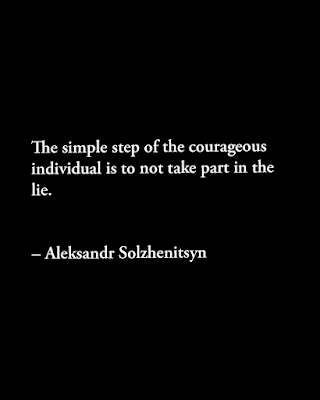A curious counterintuitive thought: is it possible that reforms -- legislation, laws, things that liberal people believe -- have ended up worsening rather than improving society? Did progressive legislation end up worsening more than it helped? To paraphrase John Cage, don’t try to improve society, you’ll only make it worse.
———
Is what we have now, a divided society, with homeless encampments in every major city as well as in smaller cities, towns, and rural Canada, an increase in drug addiction and mental illness, the absence of rental units so that rents have increased and renters live in fear of both rent increases and losing where they live, the inflated cost of food a constant worry to average people, hospitals collapsing, is this what reforms have ended up producing; we plug holes in the dike and bigger new holes appear a few feet away.
———
Consider our present dysfunctional, divided society, and the future dystopia, did anyone envisage this future for Canada? Things seem worse; "Things fall apart; the centre cannot hold; /Mere anarchy is loosed upon the world". The government and well-meaning people find the answer to social ills in more government intervention in people's lives, they want to keep us "safe", a favourite word of Justin Trudeau; Justin always wants to keep us safe, but for one group to be "safe" another group is oppressed.
———
Surely the 1950s must have been much worse than today. But were they? Remember the film The Hours in which Julianne Moore played Laura Brown, a 1950s housewife; she hated her life, she was a prisoner of that life, but reflecting on the character Julianne Moore played, we see her as a very unpleasant and selfish person, not someone to feel sorry for. We sympathized with her feeling entrapped by her life, conformity weighed heavily on society; she must have been oppressed by an angry and abusive husband as feminists have portrayed men. It was the 1950s so it must have been the way Hollywood portrayed it; Hollywood doesn't lie. But we also see that the cause of Julianne Moore`s character's anxiety was herself, she placed herself first, not her husband, not her son; nobody came first but her. What about Laura Brown's life was so bad? She had a house in suburbia, only one child, a young son who loved her, a husband who loved her and who wanted to please her, a next door neighbour who was supportive of her. And what did she do? She ran away one day, she deserted her son and husband, to the applause of many people watching the film; Laura Brown claims she chose life over death. Too bad for her son who was traumatized by her abandonment of him. (Did one or both of your parents abandon you or said they were leaving you when you were a child? Consider the depth of trauma abandonment, or death of a parent, causes in a child.) Then she lead a life of her own, maybe in a room of her own, probably reading Virginia Woolf's novels, maybe she read Mrs. Dalloway, and her son, who became a poet, committed suicide, he jumped from his loft window. His mother showed up for his memorial service. The perceived judgement, promoted by Hollywood films, is that the 1950s were deadly to the soul, to the spirit; the homogeneous society, the suburbs full of boring white people, the houses like little boxes "all in a row", were soul destroying, as Pete Seeger sang.
———
And then we turn to today's society. Christianity is laughed at, rejected, or hated; the Bible is said to be hate literature and the progressives want parts of it censored; values are laughed at; marriage as an institution is being abandoned; our prime minister and others want school boards to have more authority over children than the parents of these children; medically assisted suicide has become another part of our health care system, the Hippocratic oath and the moral authority of our physicians is of little importance; freedom of speech has been compromised or limited; we live in a cancel culture society; meanwhile, there are encampments of homeless people in every city and town, in every state and province; an increasing number of these homeless people are dying of overdoses of fentanyl, mental illness is common; legalized gambling is a source of income for a money hungry government; we can’t house our own citizens and we let in millions of immigrants, does the government do any research before acting, do they ever think anything out? Is this what we wanted when we tried to improve society, piecemeal, with endless legislation? We forgot that what you change may not necessarily improve society, it may make society worse. We forgot that when the old is discarded it will never return. It is our collective hubris writ large.
———
After eight years of Justin Trudeau's time in office Canada is in worse shape than it has ever been; this is what happens when someone is elected based on appearance and not on substance, when someone's progressive and woke values trump common sense legislation and frugal management of taxpayers' money; whatever Justin has done will eventually be discredited, it has already begun. Justin Trudeau's legacy will be that he was a wrecking ball, he is the Miley Cyrus of Canadian politics, he wrecked the country; we are now a society of debtors, a society without common values, a society where our politicians are always expedient and rarely insightful (look at them in the House of Commons, it is embarrassing, they are like braying accusatory children who have been spoiled rotten by their parents).



.jpg)





